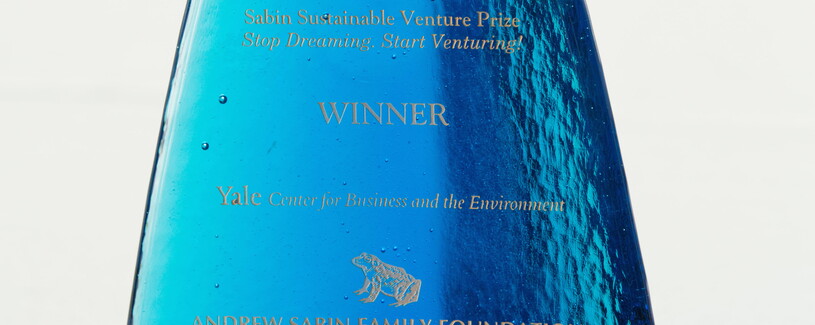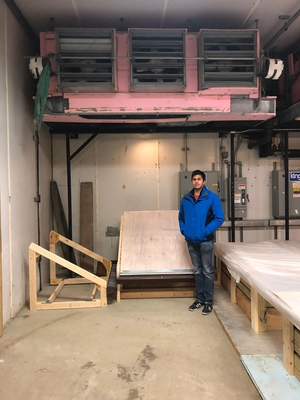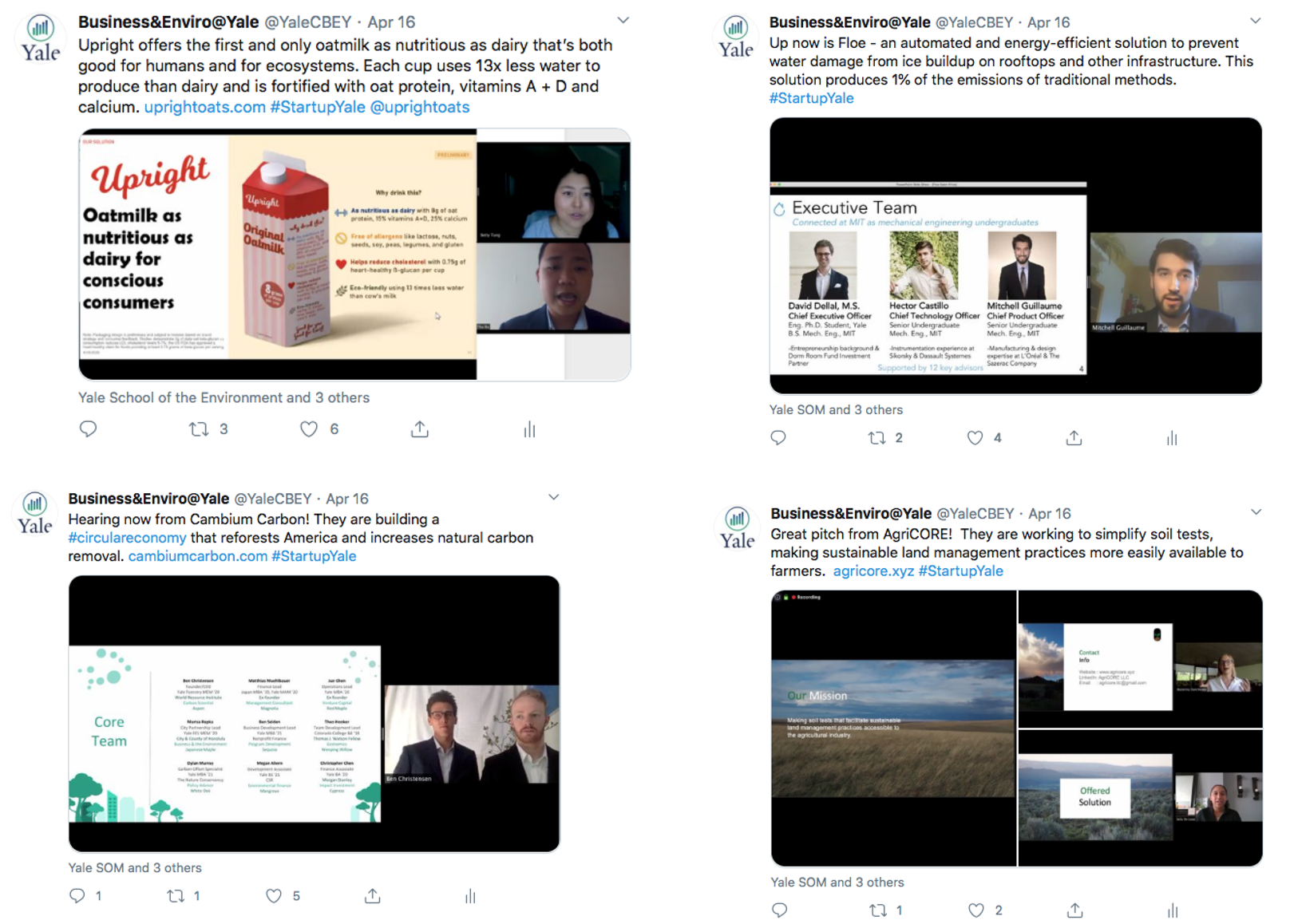Sabin Prize Finalists make summer strides, Floe awarded $25k
Floe is the first venture to be awarded each of the three prizes offered by CBEY

Last week, Floe won the Sabin Sustainable Venture Prize sponsored by the Yale Center for Business and the Environment (CBEY). This makes it the first startup to win each of the three prizes offered by CBEY.
The team includes David Dellal and Hector Castillo, current engineering Ph.D. students at Yale, and Mitch Guillaume, a former classmate when the three of them attended MIT.
Floe is building a cost-effective and environmentally friendly solution to help property owners avoid dangerous ice and water buildup on their roofs in the winter. Annually, ice dams can cost upwards of $9.5 billion in damages in the United States. Floe’s product aims to prevent damage and the subsequent costs of repair, as well as reduce the amount of petroleum-based debris (such as rooftop asphalt shingles) that ends up in the landfill as a result.
Compared to other chemical-based ice melting solutions, such as magnesium chloride, Floe’s solution is non-toxic to both flora and fauna. But the largest environmental benefit over traditional rooftop ice melting techniques comes from the energy savings. Most rooftop ice melting methods are energy-intensive, such as gas-powered machinery and installed heating cables, and use a significant amount of energy to operate.
By utilizing “smart” technology, Floe uses only 1% of the energy consumed by traditional ice melting methods. Floe’s devices are installed on rooftops where they dispense a solution that melts snow and ice. Using Internet of Things (IoT) technology, these devices dispense only when called upon (typically only a few times a day), and the amount and frequency can be adjusted based on aggregated weather-based data.
Floe has gained momentum and support since they first applied to and won a Climate Innovation Grant in the fall of 2019. This grant was followed by a Sobotka Seed Stage Grant and then Floe hit the trifecta as winners of the Sabin Prize. The Sabin Prize, typically awarded in the spring semester as part of Startup Yale, was extended this year due to COVID. This year, each of the four finalists received a $2,500 grant to continue working their venture over the summer with the hope of hosting an in-person event this fall. Judges recently convened to catch up on the progress of each of the four finalists and to select the prize recipient.
Following the final presentations, CBEY Executive Director Stuart DeCew remarked, “Each of the four finalists made remarkable progress this summer. They all demonstrated the creativity and drive entrepreneurs need to thrive under any and all conditions. Without a doubt, this is the strongest final four we have ever had in the competition.”
The three other finalists were:
- Cambium Carbon: Urban reforestation hubs
- Upright: Oat milk and oat milk-based products
- AgriCORE: Tools for rapid soil analysis, including carbon content
Over the summer, Cambium Carbon secured a $200,000 Natural Climate Solution Accelerator Grant from The Nature Conservancy and established a range of partnerships with cities across the US.
Upright pivoted to be one of the first companies selling shelf-stable powdered oat milk, redesigned its branding, brought on a Chief Technology Officer and was selected for the highly competitive equity crowdfunding platform Republic.
Agricore filed patents for their technology, reduced the size of key elements of their testing kits by 30%, began a small-scale validation pilot with OpenTEAM and established key partnerships with Quick Carbon and OurSci to conduct a larger scale pilot.
At the same time, Floe was busy conducting market research, filing patents and preparing for their pilot, which is set to launch this winter among both commercial and residential properties across 7 states. “Winning the Sabin Prize will ensure that our pilot program can move forward. Many of our pilot partners were affected by the COVID crisis and needed to direct money and attention elsewhere, understandably,” said Dellal. “This prize will help cover some costs of the pilot as well as allow us to finalize our technology validation.”
While Yale, which experiences expensive damage from ice dams each winter, is not participating in the pilot, they are interested in implementing the system when it is market-ready in 2022.
You can learn more about Floe and sign up to be considered for their pilot this winter at floesafe.com.

